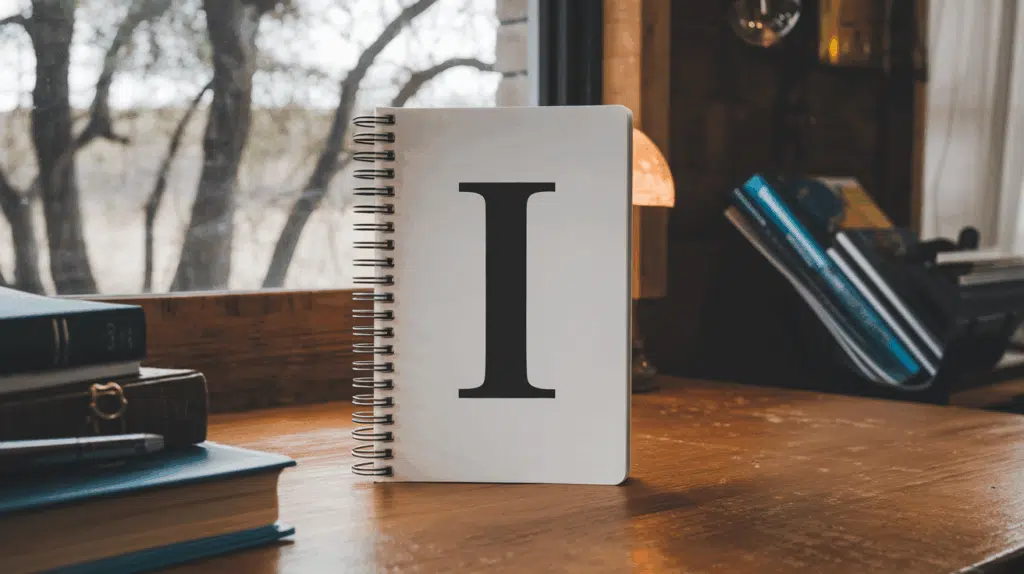Writers often struggle to find the right words when describing people, places, or situations. They know what they want to say, but can’t find that perfect descriptive word.
This collection solves that problem by providing I-adjectives. Readers will find carefully chosen words with clear definitions and practical examples.
From simple everyday adjectives to more refined choices, this resource helps writers add variety and precision to their vocabulary.
Must-Know Adjectives Starting with I

Writers seeking to amplify their descriptions will find that using I-adjectives can add nuance and depth to their work.
This collection features a variety of adjectives, each selected to help writers articulate their thoughts with greater clarity and style.
1. Iconic
2. Ideal
3. Identical
4. Idle
5. Idyllic
6. Ignorant
7. Ill
8. Illegal
9. Illogical
10. Illustrious
11. Imaginary
12. Imaginative
13. Immaculate
14. Immense
15. Immediate
16. Immobile
17. Impartial
18. Impatient
19. Important
20. Impossible
21. Impressive
22. Improper
23. Inactive
24. Inadequate
25. Inappropriate
26. Inattentive
27. Incapable
28. Incisive
29. Inclusive
30. Incomplete
31. Incredible
32. Indecisive
33. Indifferent
34. Indignant
35. Indirect
36. Individual
37. Industrious
38. Inevitable
39. Infamous
40. Infinite
41. Idiosyncratic
42. Idolatrous
43. Ignitable
44. Illimitable
45. Illusive
46. Impassable
47. Immoderate
48. Impassive
49. Imperceptible
50. Imperious
51. Implausible
52. Impregnable
53. Impromptu
54. Impudent
55. Inalienable
56. Inaudible
57. Incandescent
58. Incendiary
59. Inchoate
60. Inconsolable
61. Indelible
62. Indomitable
63. Ineffable
64. Insatiable
65. Intrepid
Click here to download the free PDF
Practical Applications of Adjectives Beginning with I

People use descriptive words in many real situations every day, but adjectives that start with I offer special versatility for writers and speakers.
These words work well in both formal and casual settings. Understanding where to apply them makes communication stronger and more effective.
- Business Communication: Companies use words like “immediate” and “important” in emails to show urgency. Managers describe projects as “innovative” to highlight creativity. These terms help businesses communicate priorities and values to employees and customers.
- Academic Writing: Students improve their essays by choosing “influential” instead of “big” when discussing historical figures. Research papers sound more professional with words like “individual” and “initial.” Teachers appreciate varied vocabulary that shows deeper thinking.
- Creative Storytelling: Authors create better characters by describing them as “independent” or “impulsive” rather than using basic traits. Setting descriptions become more life-like when writers call the weather “icy” instead of just “cold.” These words help readers picture scenes clearly.
- Social Media Content: Posts perform better when people describe experiences as “incredible” rather than “good.” Food bloggers use “irresistible” to make recipes sound more appealing. These word choices grab attention in crowded online spaces.
- Resume Building: Job seekers stand out by describing themselves as “industrious” or “insightful” instead of using common terms. Hiring managers notice candidates who use specific vocabulary. Professional profiles become more memorable with thoughtful word selection.
Summing It Up
Strong vocabulary makes the difference between ordinary writing and memorable communication. This exploration of adjectives that start with I shows how word choice affects reader engagement and message clarity.
Writers who master these descriptive terms gain tools for better expression across all contexts.
From business emails to creative stories, the right adjective creates stronger connections with audiences.
Language becomes more precise when people choose specific words over generic ones. These descriptive options help anyone communicate ideas with greater impact and effectiveness.
















